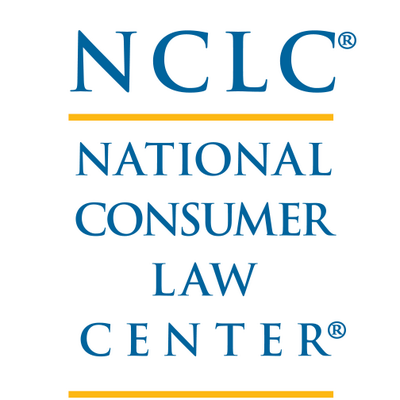National Consumer Law Center Urges HUD to Reduce Foreclosures on Widows and Widowers of Reverse Mortgage Borrowers
 Reverse mortgages are intended to help elders age in their homes. Yet, across the country, widows and widowers are losing their homes because of the U.S. Department of Housing and Urban Development (HUD)’s failure to prevent foreclosures on reverse mortgages that their now-deceased spouses previously obtained.
Reverse mortgages are intended to help elders age in their homes. Yet, across the country, widows and widowers are losing their homes because of the U.S. Department of Housing and Urban Development (HUD)’s failure to prevent foreclosures on reverse mortgages that their now-deceased spouses previously obtained.
Advocates at the National Consumer Law Center have issued a new report showing the harm that HUD’s practice causes to widows and widowers, and urging HUD to take immediate action to better inform reverse mortgage borrowers and their spouses about options to avoid foreclosure on a non-borrowing spouse, remove arbitrary and unrealistic deadlines for lenders to elect to participate in the program, and ensure that the program can work effectively to help non-borrowing spouses stay in their homes.
“Failing to take reasonable steps to protect widows and widowers from a foreclosure risk caused by HUD’s own unlawful regulation is not only unjust, it’s bad policy,” said Sarah Mancini, an attorney with the National Consumer Law Center. “A significant number of older homeowners now face the loss of their homes as well as their community support networks due to HUD’s harsh deadlines and a lack of information.”
Reverse mortgage loans are designed to make it easier for older homeowners to age in place by allowing them to borrow against the equity in the home without the risk of displacement. The proceeds of a reverse mortgage can be taken as a lump sum, a line of credit, or a stream of monthly payments. So long as the borrower continues to occupy the home as his or her principal residence, the borrower must pay property taxes and the homeowner’s insurance premium, but need not make payments of principal or interest on the loan.
Unlike most mortgages, where the balance goes down over time, with a reverse mortgage the loan balance grows over time as the interest is added to the principal balance (hence the name “reverse” mortgage). The full loan balance becomes due and payable upon a triggering event – in most cases, the death of the last remaining borrower.
Congress specified that HUD could only insure loans that protected both the homeowner and any spouse from displacement. However, despite this requirement, HUD issued regulations that required lenders to use form loan documents that made the loans due and payable upon the death of the borrower – ignoring any spouse who was not included as a borrower on the loan.
This created an incentive for some lenders and mortgage brokers to encourage married couples to leave the younger spouse off the loan. Most couples who opted to take out a reverse mortgage in the name of only one of the spouses had no idea that the non-borrowing spouse would face foreclosure and eviction because the loan would become due and payable upon the death of the borrowing spouse.
In response to litigation, HUD changed its regulations for new reverse mortgages issued after August 2014, but pre-2014 loans still go into foreclosure unless the surviving spouse can take critical steps within a very short time after the death of the borrowing spouse. The surviving spouses are often unaware of the significant substantive requirements and short deadlines, and may be overwhelmed by the many demands they face after losing a loved one.
“HUD should require servicers to regularly inform borrowers and their spouses of the proper procedures to remain in their homes,” said Mancini. “Right now, too many spouses have no idea that options exist until it is too late.”
NCLC attorneys recommend the following changes in order to make assistance for reverse mortgage borrowers more accessible and viable for non-borrowing spouses.
-
HUD should remove unnecessary deadlines for the program or, at a minimum, provide waivers of deadlines in appropriate cases.
-
HUD should require servicers to communicate clearly with borrowers and non-borrowing spouses about the program and steps needed to qualify for the program, beginning, even before the borrower’s death.
-
HUD should allow additional time for non-borrowing spouses to cure a default on property taxes or insurance when spouses are actively attempting to repay these charges or are eligible for help through an assistance program such as a Hardest Hit Funds program.
-
HUD should require servicers to communicate with non-borrowing spouses at every step of the process, and HUD’s Servicing Center should provide accurate, up to date information to any non-borrowing spouse who makes an inquiry about the status of an application for the program.
-
HUD should expand the program to include non-borrowing spouses who want to remain in the home when the borrowing spouse is still living but has moved out permanently, for example due to health reasons.
For a complete list of recommendations and for more information on reverse mortgages and HUD’s programs, view NCLC’s issue brief.